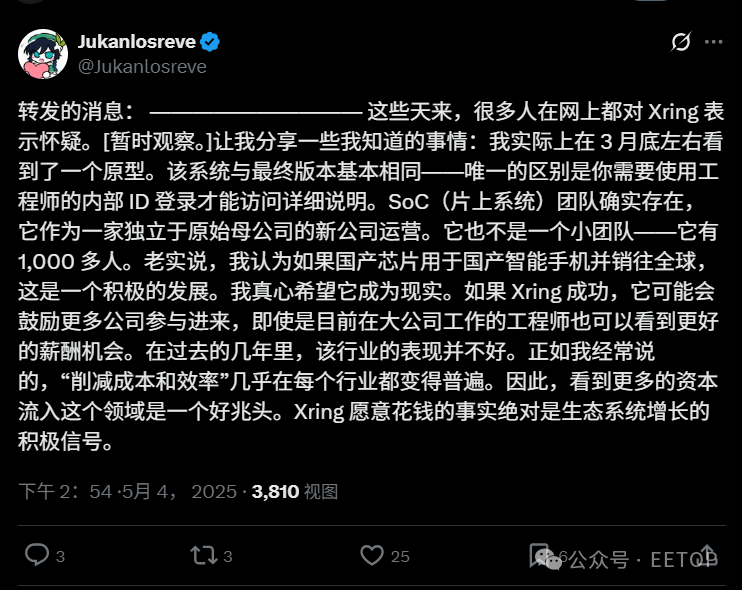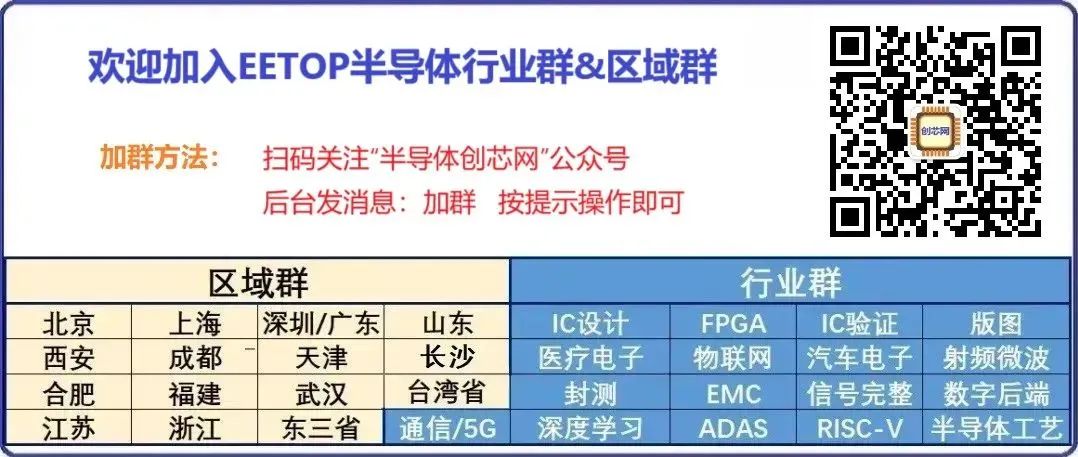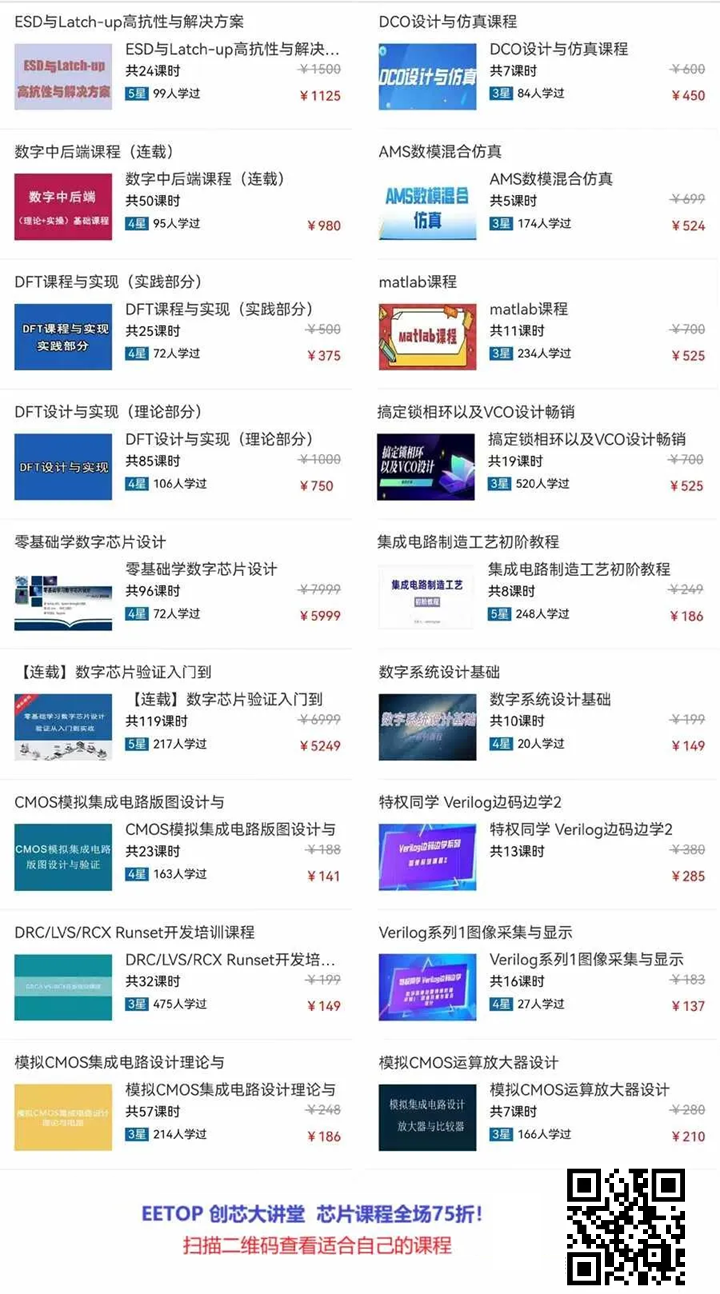According to foreign media WCCFtech, in order to reduce reliance on Qualcomm and MediaTek, Xiaomi has begun to develop its own chips, with the upcoming self-developed chip named Xring. It is reported that this team has about 1,000 employees and will operate separately from Xiaomi’s main company.According to the leaker@Jukanlosreve, more details about Xring were shared, stating that he saw its prototype at the end of March and confirmed that the SoC team indeed exists and operates as an independent company. Furthermore, this is not a small team, but one with over 1,000 members.
(Webpage auto-translation)
@Jukanlosreve believes that if Xring is successful, it may encourage more companies to participate, and even engineers currently working in large companies may receive better salary opportunities. Currently, “cost reduction and efficiency improvement” have been widely applied in almost all industries, and Xring’s willingness to invest in the growth of the ecosystem is undoubtedly a positive signal.
Previously, market news indicated that Xiaomi’s self-developed 3nm mobile system-on-chip (SoC) had entered the design finalization (tape out) stage, with expectations for a release this year. However, as we approach the end of the first half of the year, no new news has emerged. Reports suggest that this may have caught the attention of U.S. authorities.
As a result, the Xring department may operate independently from Xiaomi to minimize unnecessary external attention. Currently, the anticipated launch of Xiaomi’s self-developed SoC may also encourage other manufacturers to follow suit.
According to Xiaomi’s previous internal announcement, a chip platform department will be established under the organizational structure of the mobile product department, with Qin Muyun appointed as the head of the chip platform department. He will report to the general manager of the product department, Li Jun, and there is also speculation that he may report directly to CEO Lei Jun, indicating that the entire development process will be closely monitored. Qin Muyun previously worked at Qualcomm as a senior director of product marketing before joining Xiaomi.
The last time Xiaomi launched a self-developed chip was the Surge S1 released in 2017, which was manufactured using TSMC’s 28nm process. Currently, rumors suggest that Xiaomi’s Xring will use TSMC’s 4nm process, achieving overall performance comparable to Qualcomm’s Snapdragon 8 Gen 1, with an expected public release in the first half of this year. However, this chip will utilize existing Arm design architecture rather than any self-developed cores from Xiaomi.
Related Reading:
-
Reports indicate: Xiaomi’s self-developed 3nm SoC

Recommended Reading
- Chip Giants Ban Chinese EDA!
- Chip First Tape-Out Success Rate Plummets!
- Family Relationship Chart of Jensen Huang and Lisa Su (HD)
- DeepSeek’s Amazing Operation: Replacing CUDA with Assembly for Performance Boost!
- Chip Competition – The Peak Showdown Between Cousin and Uncle!
- Chip Company Collapse, Chairman Flees! Self-Developed High-End CPU Becomes a Bubble!
Follow Us and Set as Starred


EETOP
Millions of Chip Engineers Professional Technical Forum
Official WeChat Account
Chip Course 5.1 Mega Discount from Chuangxin Lecture Hall